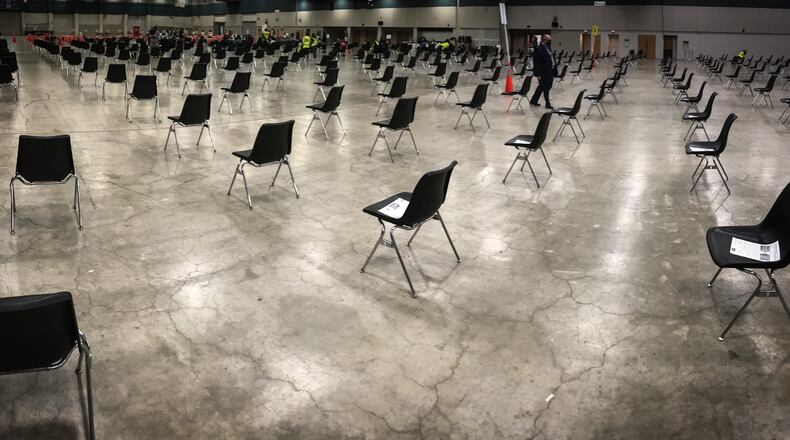“Thursday we did have some openings so this week we’ve begun to see some more open appointments,” Suffoletto said.
Premier Health also said they had seen a slowdown in the number of people signing up for COVID-19 vaccines. They are working with community partners to promote vaccines.
Suffoletto added, though, that the vaccine is now much more widely available, and from more places than just the public health department.
“So the good news is that there’s many places people can go to get vaccinated,” he said.
About 36% of the Montgomery County population have gotten at least one dose of the COVID-19 vaccine, according to data from the Ohio Department of Public Health, and about 26% of Montgomery County residents are fully vaccinated.
Statewide, about 37% of the population have gotten at least one dose of the vaccine, and about a quarter of Ohioans are fully vaccinated.
Of those done with the inoculation, nearly half a million of them are between the ages of 50 to 59.
While more than 4.3 million Ohioans have gotten at least one dose of the vaccine, many people still say they are concerned about getting the vaccine or are worried about what will happen after they get the vaccine.
“We know that people are going to be hesitant with any vaccine so it’s not just the COVID vaccine, it is many vaccines people are hesitant about,” said Suffoletto.
He and doctors from Premier Health and Kettering Health all said they do their best to educate people about the vaccine and sort out misinformation.
Dr. Roberto Colon, chief medical officer at Miami Valley Hospital, said the news this week about the Johnson & Johnson vaccine being put on pause would probably be concerning to some people. He noted that the blood clot cases only occurred in about six people out of the close to seven million who have gotten the vaccine. Nothing similar has been seen in the Pfizer or Moderna vaccines, and far more of those vaccines have been given out in the U.S.
“At this time, we have Pfizer and Moderna, people that are receiving those vaccines should be very confident - should be very comfortable about the safety and the efficacy about those vaccinations,” Colon said.
He said people do have real fears around getting a vaccine and it’s important to acknowledge that.
“Anytime we deal with hesitancy, anytime we deal with fear, you have got to recognize that that’s a very real feeling, and then take the step to understand what’s prompting that,” Colon said.
Dr. Jeffrey Weinstein, patient safety officer with Kettering Health Network, said while people will still have to wear a mask and social distance once they are vaccinated, the vaccines are very effective at preventing COVID-19.
“The majority of people who’ve been vaccinated will not get COVID,” Weinstein said. “And just by definition then will not transmit to anyone.”
Suffoletto said to people who aren’t worried about getting sick, they could still get someone sick they love and it’s better to get a vaccine.
“The actions that you do impact others, so even if you’re not concerned about getting sick, you may inadvertently make family members sick, your grandparents sick, a lot of people sick, so that’s why we need to get as many people vaccinated as possible,” Suffoletto said.
Kristen Spicker contributed to this story.
How to get a vaccine
To schedule an appointment, go to https://gettheshot.coronavirus.ohio.gov/.
About the Author

